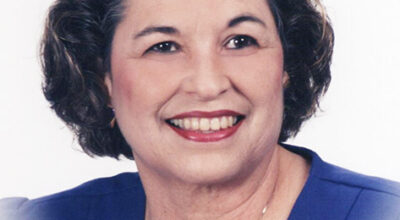Not Beto? No donations: Congressional candidates flush with cash; other Texas Dems not so much
Published 10:19 pm Thursday, November 1, 2018
By Edgar Walters
and Ryan Murphy
The Texas Tribune
texastribune.org
When Democratic gubernatorial candidate Bill White launched his 2010 bid to unseat then-Gov. Rick Perry, Fort Worth investor Bobby Patton took a liking to the Democrat and gave White’s campaign $250,000. White lost the election by 13 points.
Four years later, when Democratic hopeful Wendy Davis ran against Republican Greg Abbott for governor, Patton, a part owner of the Los Angeles Dodgers baseball team, became one of Davis’ biggest donors, giving a little more than $250,000. Davis ultimately lost by 20 points.
This election cycle, Patton decided to switch teams. He cut a check this year to Abbott’s re-election campaign for $25,000. That was on top of the $250,000 he donated to Abbott the year before.
Patton, who declined to be interviewed for this story, is hardly the only top-tier funder to cut ties with statewide Democrats, according to a Texas Tribune review of campaign finance records. Even as congressional candidates rake in record-breaking cash hauls — headlined by U.S. Senate candidate Beto O’Rourke’s unprecedented $70 million war chest — deep-pocketed donors have largely abandoned this year’s Democratic candidates for governor, lieutenant governor and other non-judicial statewide offices.
That’s despite the fact that, unlike those congressional candidates, state candidates may rake in unlimited individual donations under Texas campaign finance law.
And because those statewide candidates have largely failed to make up the money elsewhere, their fundraising hauls this cycle amount to only about 10 to 20 percent of what their predecessors raised in 2010 and 2014, the Tribune found.
It’s a bad year not to be named Beto O’Rourke.
“At the federal level you have a plethora of very high-quality and talented candidates running in districts where there’s a realistic prospect of victory,” said Mark Jones, a professor of political science at Rice University. “You can contrast that with the statewide races where Democrats were effectively left with … whoever was willing to run.”
Less than a week before the Nov. 6 general election, the Democratic statewide ticket led by gubernatorial hopeful and former Dallas County Sheriff Lupe Valdez has raised a combined $6.5 million this cycle, a fraction of the $59.8 million that the 2014 slate raised over the same period and less than a quarter of the $27.5 million that the 2010 candidates brought in.
They’re miles behind their Republican opponents this cycle. Abbott alone has raised nearly $42 million this cycle, while the rest of the non-judicial Republican statewide ticket has brought in roughly $30 million, according to an analysis of Texas Ethics Commission records.
Because Abbott’s race does not appear competitive, much of his war chest can fund efforts to help Republicans up and down the ticket, said Brandon Rottinghaus, a political science professor at the University of Houston. The incumbent governor boasts that “Abbott University,” a voter mobilization program he’s kept running since the 2014 election, has graduated nearly 7,000 campaign volunteers and workers.
While O’Rourke has energized the Democratic base and appears to have forced incumbent U.S. Sen. Ted Cruz into Texas’ most competitive statewide race in decades, the money drought among the rest of the ticket reflects a longer-term problem for Democrats, Rottinghaus said.
“Cultivating donors is a key part of being able to be resource rich to fund an infrastructure,” he said. “If that doesn’t happen or happens only in spurts, it makes it impossible to maintain a continuous relationship Democrats need to have with voters.”
Democratic operatives see things differently. Comparisons between election cycles are misleading because there are more formidable candidates this year for federal office, said Jeff Rotkoff, a political operative with a long history in Texas Democratic circles. The congressional campaigns of Democrats Joseph Kopser, Gina Ortiz Jones and Lizzie Pannill Fletcher, for example, have reported combined contributions worth more than $13 million.
“In 2014, the U.S. Senate candidate [David Alameel] didn’t raise any money,” he said. “In 2014, we didn’t have congressional candidates raising millions of dollars.”
“To my mind, it’s not poor, it’s reflective of what the theory of change is for progressives in Texas … that the path to victory is ‘A rising tide lifts all boats,’” Rotkoff said.
Whether all the attention and money being lavished on this year’s congressional candidates will bring down-ballot benefits to statewide candidates remains to be seen. But an analysis of campaign finance records clearly reveals a shift this year in the kinds of Texas candidates and political action committees that left-leaning donors are willing to fund, with statewide candidates ranking among the biggest losers.
Disclosure: Rice University, the University of Houston and Steve Mostyn and Amber Anderson have been financial supporters of The Texas Tribune, a nonprofit, nonpartisan news organization that is funded in part by donations from members, foundations and corporate sponsors. Financial supporters play no role in the Tribune’s journalism.
The Texas Tribune is a nonpartisan, nonprofit media organization that informs Texans — and engages with them – about public policy, politics, government and statewide issues.
This story has been edited for length.




